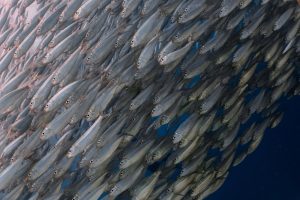In May, the port town of Labuan Bajo played host to the 42nd Association of Southeast Asian Nations (ASEAN) Summit, under the theme “ASEAN Matters: Epicentrum of Growth.” However, the theme of growth contrasts starkly with the reality that there are still many unresolved maritime security problems in Southeast Asia.
Accordingly, the high-level regional meeting resulted in agreements to support the protection of migrant workers, prevent human trafficking, and address the high number of illegal fishing practices throughout ASEAN countries.
During the recent 4th Meeting of the Food and Agriculture Organization Agreement on Port State Measures, which was held in Bali on May 8, delegates also highlighted the importance of tackling Illegal, Unreported and Unregulated (IUU) fishing. The meeting emphasized that IUU fishing is a global concern and a threat to the conservation and sustainability of marine resources and ecosystems, given that more than 600 million people depend on the sector for their livelihoods worldwide. These concerns about economic losses are particularly relevant in maritime Southeast Asia, where hundreds of thousands of fishers earn their living from the ocean.
In 2019, the total economic loss in ASEAN due to illegal fishing reached a staggering $6 billion. To take a more targeted example, the financial losses from IUU fishing from within Indonesia’s Exclusive Economic Zone around the Natuna Islands alone amounted to $198 million in 2016. However, there are distinct differences between countries. First, each ASEAN government has a different method for calculating the financial impact of illegal fishing practices. Second, the EEZ of each country in ASEAN is a different size, which makes the potential loss for Indonesia, which has a greater territorial sea area, much greater. These differences are two of the reasons ASEAN countries find it hard to produce a compatible data set on the impacts of IUU fishing. This, in turn, makes it harder to create effective solutions to a common problem.
Additionally, the potential loss is likely much more significant than these figures suggest, given that IUU fishing causes also causes severe social impacts related to illegal recruitment and employment practices, both upstream and downstream, as well as tremendous environmental damage and marine pollution.
Upstream practices typically involve the illegal recruitment and registration of fishing crews. Incomplete or incorrect registration by agents or bureaus that do not provide the correct permits can cause fishers to become potential victims of abuse once fishing vessels disembark.
Fishing crew members working on fishing vessels that do not have work permits or work on illegal vessels are ineligible for worker protection. For instance, many unreported fishing crew members from Indonesia travel to other countries as tourists, but then board illegal fishing boats from the destination country to work in international waters. In order to prevent this outcome, the recent ASEAN Summit agreed to adopt measures to protect migrant workers and their families in crisis situations. By eradicating the crime of trafficking in persons, particularly trafficking that is facilitated by the use of digital technology, ASEAN hopes to help provide more protection for migrant workers employed on fishing boats.
Meanwhile, downstream, employment agents look for candidates from poor backgrounds who desperately need employment. Agents will often woo workers with the promise of high salaries on modern fishing vessels. This very often contrasts with the reality: poorly paid work that is undertaken in a poor environment lacking adequate safety standards.
ASEAN has made efforts to prevent illegal fishing practices and criminal activities linked to IUU fishing. In 2015, for example, the bloc introduced guidelines to prevent the entry of fish and fishery products from IUU fishing activities into the world’s seafood supply chains. However, the agreement and commitment at the ASEAN level have in many cases failed to translate into proper implementation in each country. Regional agreements can lack teeth, especially when they collide with the national interests of different ASEAN member states.
Data from the Indonesian Ministry of Fisheries shows that 789 illegal fishing boats were caught entering Indonesian waters between 2015 and 2021. Although the number caught annually fell by around 24 percent during that period, illegal fishing remains a significant problem for the country.
A lack of commitment among ASEAN member countries contributes to slow progress in combatting IUU Fishing. Southeast Asian governments are agreeing to tackle the problem without the associated financial obligation required to make the joint plan successful. As a result, each ASEAN member tends to prioritize its national interest. Therefore, the bloc needs a concrete action plan, including the creation of joint funds that can be used to develop a regional work plan, to tackle illegal fishing practices. Funding from each ASEAN member would be dependent on the size of their respective sea area and the fishery needs of each country.
If ASEAN demands a level of responsibility without demanding a similar level of financial commitment from each member country it will only make eradicating illegal fishing practices an ongoing battle.
This article is part of the ‘Blue Security’ project led by La Trobe Asia, University of Western Australia Defence and Security Institute, Griffith Asia Institute, UNSW Canberra and the Asia-Pacific Development, Diplomacy and Defence Dialogue (AP4D). Views expressed are solely of its author/s and not representative of the Maritime Exchange, the Australian Government, or any collaboration partner country government.

































